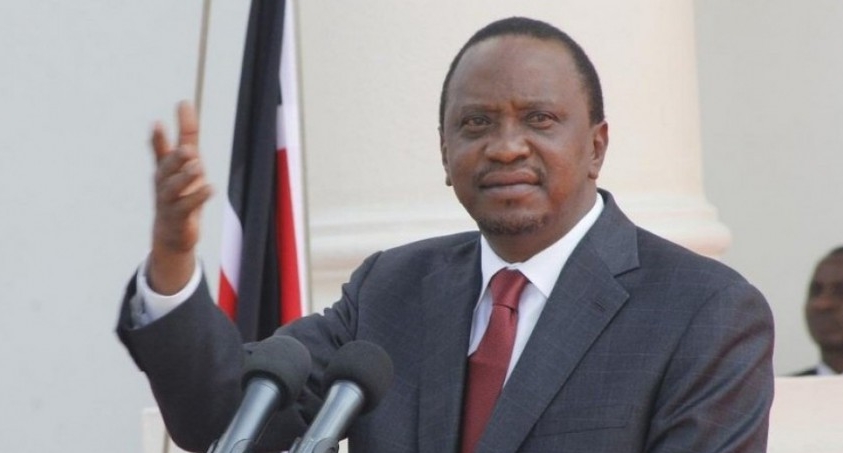President Kenyatta inaugurates the upgraded Inland Container Depot in Embakasi
President of Kenya, Uhuru Kenyatta dedicated the upgraded Inland Container Depot in Embakasi to the nation recently, paving way for the launch of the SGR Cargo Services.

December 20, 2017: President of Kenya, Uhuru Kenyatta dedicated the upgraded Inland Container Depot in Embakasi to the nation recently, paving way for the launch of the SGR Cargo Services. The new depot will go a long way in decongesting the port.
Speaking at the launch function, Uhuru Kenyatta said that the government is committed to lowering the cost of doing business through investment in enabling infrastructure.
“Over the last four years, the government has invested in the expansion of the country’s transport and infrastructure network with a view to reducing the cost of doing business while creating new business and employment opportunities. The launch of the Madaraka Express in May this year has already had a significant impact on the tourism sector, boosting both foreign and domestic tourism; commissioning of the new Nairobi Inland Container Depot is expected to pass on the benefit to both importers and exporters of cargo,” Kenyatta said.
According to a release from Kenya rails, the cost of transporting cargo is set to come down once the cargo service is in operation. The minimum cost of transporting a fully loaded 20ft container is set at Ksh. 19,800 for a minimum distance of 200 Km. The maximum cost of transporting a fully loaded 20ft container has been set at Ksh. 49,500 for the full distance between the port of Mombasa and the Nairobi inland container depot.
The release further says the agricultural inputs will so enjoy a lower rate at a minimum cost of Ksh. 16,500 for a minimum distance of 200 Km and a maximum cost of Ksh. 41,250 for the full distance between the port of Mombasa and the inland container depot.
This investment is in line with other Vision 2030 projects and the wider regional plan under the Northern Corridor integrated projects. The new Inland Container Depot’s capacity has been expanded from 180,000 tonnes to 450,000 tonnes.
On his part, Transport and Infrastructure, the cabinet secretary, Dr James Macharia said the government is committed to increasing efficiency within the local and regional transport ecosystem.
“The port of Mombasa is expected to see a 7.6 percent annual increase in cargo, so far we have recorded a 25 percent increase in cargo between 2012 and 2016 with tonnage increasing from 21.9 million tonnes to 27.4 million tonnes. This means that we have to clear cargo faster and more efficiently, the SGR will enable us to evacuate Nairobi bound cargo directly from the port for clearance at the inland container depot enabling the port to handle more cargo,” CS Macharia said.
According to Kenya Railways, managing director, Atanas Maina, exporters of various commodities are the biggest gainers under the cargo tariff.
He said, “Motor vehicle importers will incur a cost of Ksh. 3300 to transport their vehicles from the port of Mombasa to Nairobi while Transit vehicles will be ferried at a cost of Ksh. 2,640.”
The maximum weight allowed on a 20 ft container is 30 tonnes while the maximum allowed weight on a 40ft container is 35 tonnes. The costs are however exclusive of handling costs and VAT. All goods destined for the local market will be subjected to 16 percent VAT while transit goods and goods being exported from Kenya will be Zero rated.
Handlers of large cargo volumes between 4,000 and 40,000 tonnes will enjoy discounts between 5 percent and 20 percent. The minimum chargeable weight for non-containerised cargo is 70 tonnes while that of light down traffic such as foodstuffs, steel, animal feeds and paper is set at 43 tonnes per bogie wagon.


